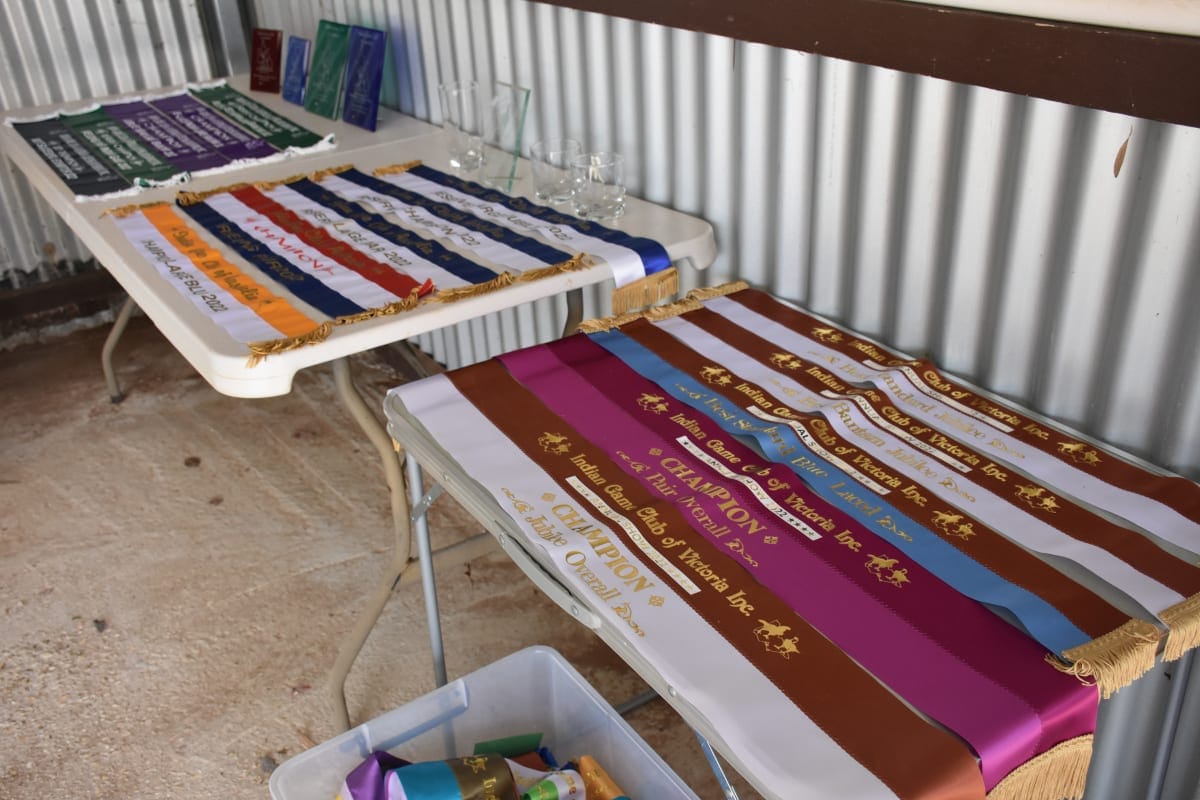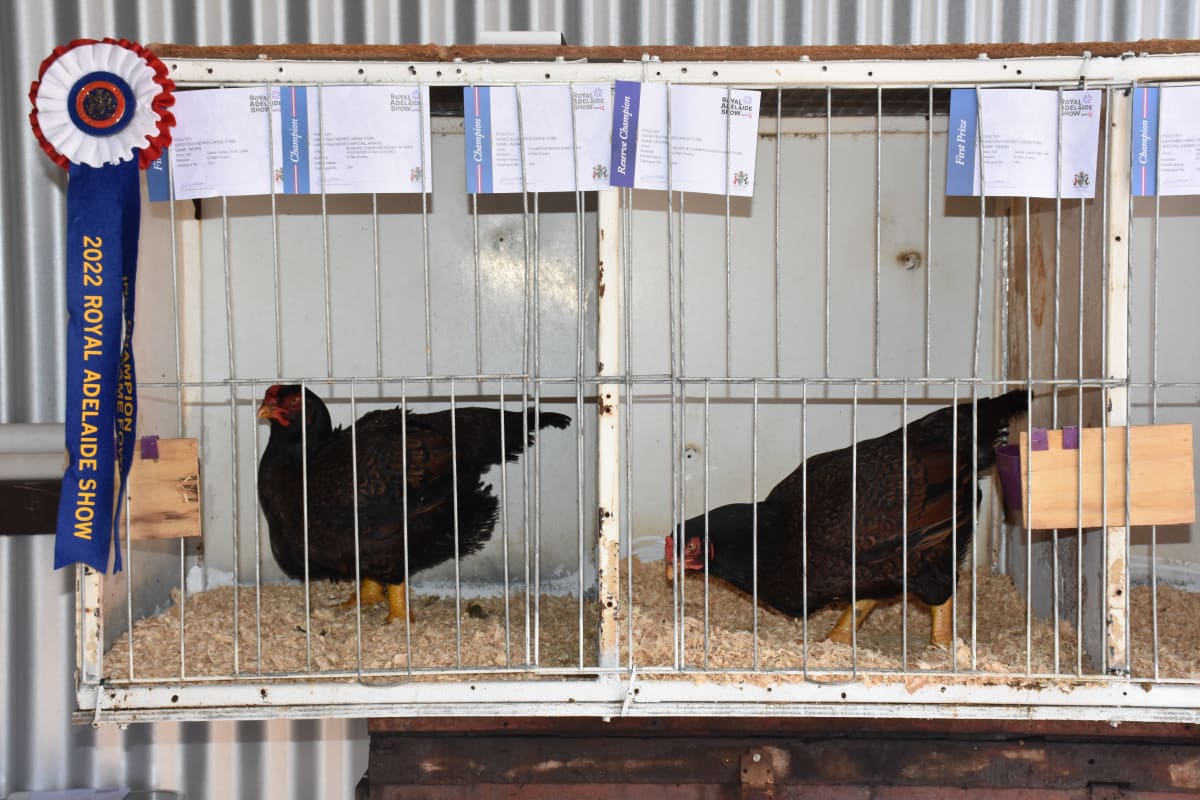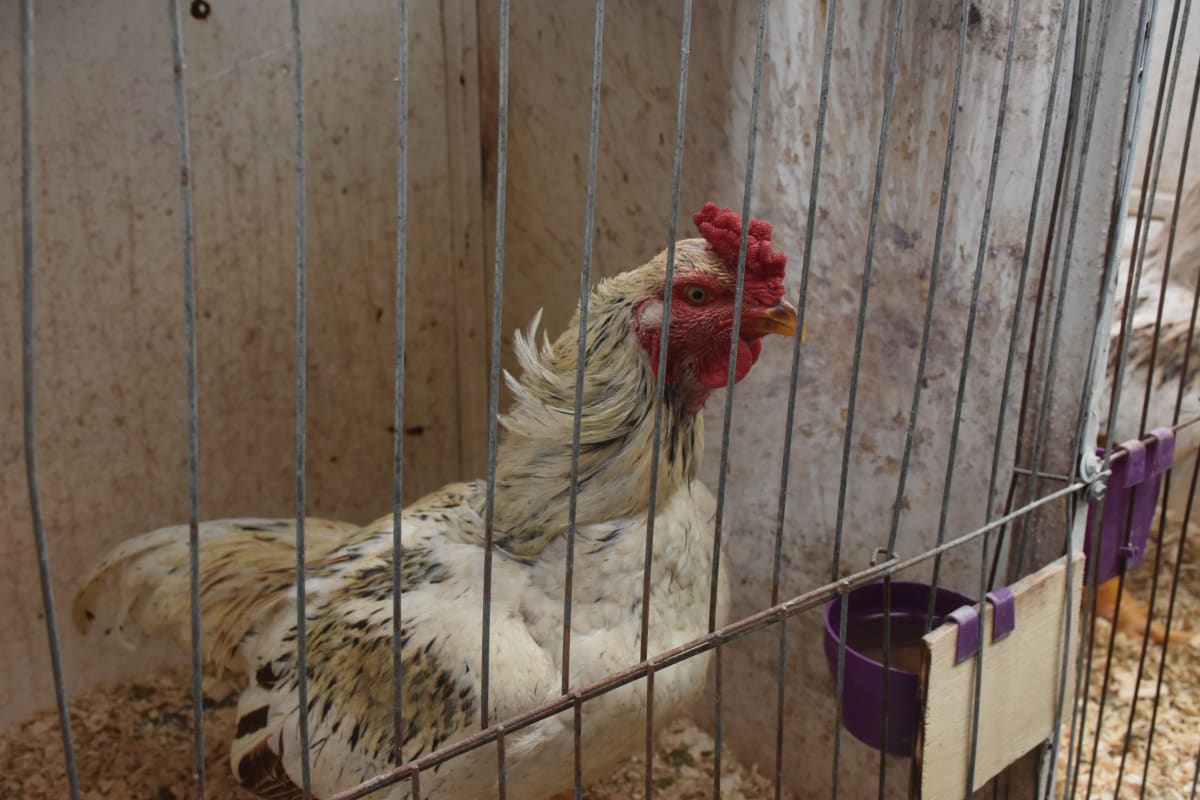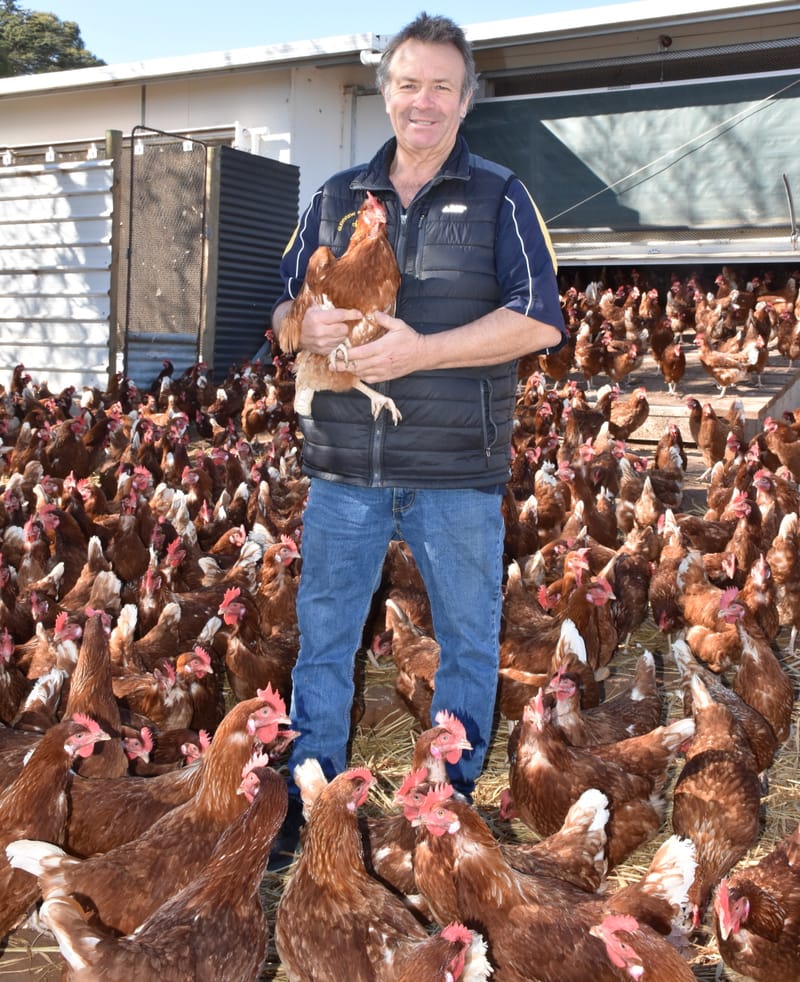Bird is the word for local competitive chook breeder
WHEN most people are thinking of potential hobbies, breeding hundreds of chickens to lug around to every corner of the country for competitions might top few lists. But for a lot of his life, Loxton landscaper Dave Adams has made Indian game...

WHEN most people are thinking of potential hobbies, breeding hundreds of chickens to lug around to every corner of the country for competitions might top few lists.
But for a lot of his life, Loxton landscaper Dave Adams has made Indian game competitions his passion.
“At about probably the age of 10, Mum and Dad introduced us to poultry at the Loxton Show,” Dave said.
“I started getting into poultry then, but I gave it up for about 20 years because of work and all that sort of stuff.
“I got back into competitions in 2012, and I just picked the Indian game because that’s the one I truly loved.
I made the mistake of going to a show, and my partner Michelle said we should have a look at the chooks, and that was it. I told her I had to get back into chooks.”
In the decade since, Dave has won hundreds of awards, trophies and ribbons at state and national shows all over Australia.

“We drove to Dubbo to get my very first trio of Indian game one weekend in about 2010,” he said.
“My very first show back was the Mildura Show and we won champion bird and reserve champion bird of show of about 290 birds.
“The older guys, who are unfortunately starting to pass, are the ones you get your knowledge from and know what to do with the birds to improve your breed.
“A guy by the name of Richard Narik is who I first got my birds from when I got back into it and basically he was my mentor.
“He’s still called the ‘Indian game king’, but about six or seven years ago I beat him at the Victorian Indian Game Show.
To beat your mentor is not bad and you stick your chest out a little.”
Dave, who is the largest breeder of Indian game chickens for competition in SA, said it was a “very expensive hobby”.
“I breed on average about 350 birds per year, so feed costs a fortune,” he said
“I’ve got a specialty-built trailer that’s got caravan vents on the side and the whirly bird on the roof.
“Even on a day of about 42C, inside the actual trailer was 23C.

“I’m probably one of the lucky ones because I can sell enough birds to cover my costs because everyone wants my birds.
“We did the Victorian Indian game show just before Covid and I sold $6000 worth of birds and my partner said it was like cats following mice.
“There was a line of people behind me seeing what I had left. We did the same in Queensland, where I sold $4500.
“That covers all our fuel, our accommodation and all our meals.
“I usually have enough money left to buy three or four months’ of chook food as well.”
To get started, Dave said he had to do “a lot of reading and gain a lot of knowledge” on how to present the birds for competition.
“I’ve now bought five books just about Indian game to know that I’m getting it right with things like eye colour, the shape of the bird and its stance,” he said.
In competition, regardless of what kind of bird it is, presentation is number one.
“We clean the birds, trim the birds, trim their nails, clean their beaks, you clean all the scales on their legs and you have to get in there with a toothbrush… and occasionally a toothpick.
“You’ve got to get them dead clean. People keep asking how I keep winning, and that’s how.
“There are judges who actually weigh the birds. The Indian game is a bulky meat bird, so for a bantam the average male will be about 2kg, and the average female will be about 1.5kg.
“The large need to be at an average of about 4kg to 4.5kg for males and about 3.5kg to 4kg for females.
“We’ve got a team A, B and C, and who’s judging impacts which team we’ll take.
“That’s why we’ve got so many birds, but it’s working, so we’ll keep doing it.”

Dave said he enters birds in about seven shows each year, including the Royal Adelaide Show, with many of the same competitors heading to each event.
“We all get together and talk before the judging, but then when the judging is on no one talks to each other,” he said.
I sold a bird to guy from Queensland and at the next show we went to he actually beat me with the bird he bought from me.
“I thought that was good because now I know I need to improve on that particular breeding style to beat him again.
“It makes you go home and have a look at your birds and concentrate on it.
“I’ll keep doing it, even if I start getting beaten.”



